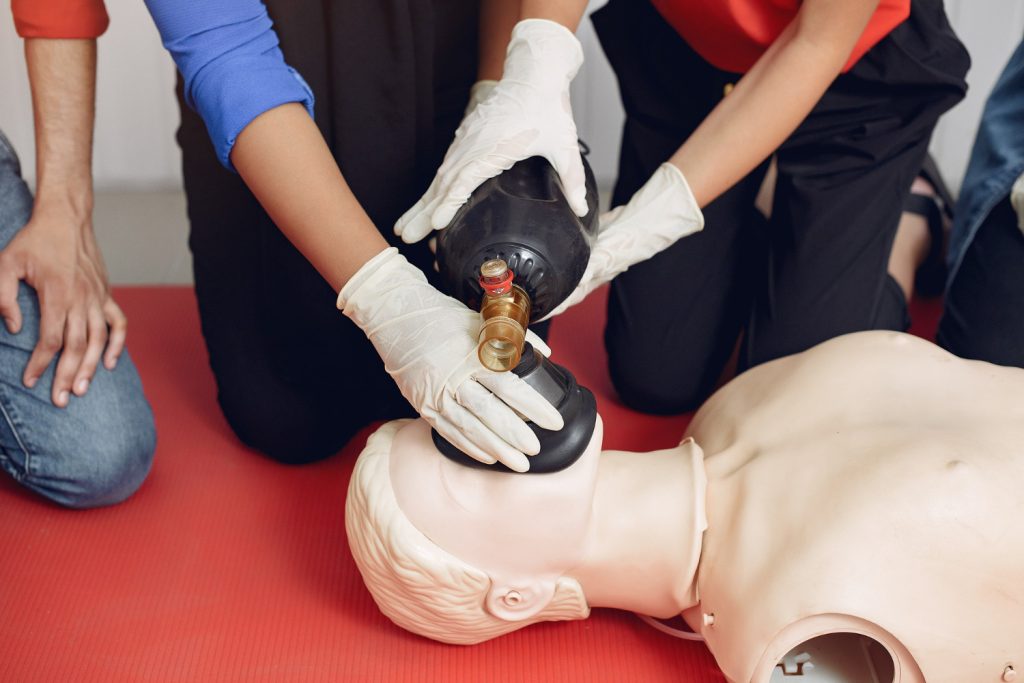
In the pursuit of life-saving skills, choosing the right training becomes a pivotal decision. Baltimore residents have access to two prominent certifications in the realm of emergency medical response – Advanced Cardiovascular Life Support (ACLS) and Basic Life Support (BLS). If you find yourself in Baltimore and are contemplating which training suits your needs best, dive deeper with us as we explore the nuances and distinctions between ACLS and BLS.
Advanced Cardiovascular Life Support (ACLS) is a specialized training designed for healthcare professionals who are involved in the management of cardiac emergencies. It delves into the intricacies of recognizing and responding to cardiovascular emergencies, including cardiac arrest, stroke, and acute coronary syndromes.
ACLS goes beyond the foundational skills covered in BLS, focusing on advanced interventions such as administering medications, interpreting electrocardiograms (ECGs), and managing complex airway situations. Healthcare providers, including doctors, nurses, and paramedics, benefit immensely from ACLS training, as it equips them to handle critical situations with a higher level of expertise.
In a bustling city like Baltimore, where medical emergencies can happen anywhere, ACLS becomes a beacon of expertise for healthcare professionals. The comprehensive nature of ACLS training ensures that professionals are well-equipped to navigate the complexities of cardiac emergencies.
Basic Life Support (BLS), on the other hand, serves as the fundamental building block of life-saving skills. It is suitable for a broader audience, including non-healthcare professionals and individuals who want to be prepared for emergencies in various settings.
BLS training covers essential skills like cardiopulmonary resuscitation (CPR), proper use of an automated external defibrillator (AED), and basic airway management. This certification is crucial for anyone, from teachers and childcare providers to fitness instructors and laypersons, who wants to make a difference in emergency situations.
In the diverse communities of Baltimore, BLS training emerges as a unifying force. Its accessibility and applicability empower individuals from various backgrounds to contribute to community safety.
One of the primary distinctions between ACLS and BLS lies in the scope of practice. ACLS, being advanced, involves a more extensive range of interventions and skills. It is tailored for healthcare professionals who may encounter complex medical emergencies that require a higher level of expertise. BLS, on the other hand, covers foundational skills that are essential for anyone, regardless of their medical background.
The diverse medical landscape of Baltimore necessitates a spectrum of skills. ACLS addresses the intricate needs of healthcare professionals, while BLS provides a solid foundation for the broader community.
ACLS is specifically designed for healthcare professionals like doctors, nurses, and paramedics who are directly involved in patient care. BLS, being more general in nature, caters to a broader audience, including individuals in non-medical professions and the general public.
In a city teeming with professionals from various fields, the distinction in target audience becomes crucial. Whether you’re a seasoned healthcare practitioner or an individual in a non-medical role, there’s a life-saving path for you.
Given the advanced nature of ACLS, the training duration is typically longer compared to BLS. ACLS courses delve into in-depth theoretical knowledge and hands-on practice scenarios that require a more extensive time commitment. BLS, being foundational, is often more concise and suitable for individuals with time constraints.
Time, often a precious commodity, plays a significant role in deciding the appropriate training. ACLS demands a commitment to mastering advanced skills, while BLS offers a quicker route to foundational knowledge.
If you are a healthcare professional directly involved in patient care, ACLS is the natural progression to enhance your life-saving skills. For those in non-medical professions or seeking fundamental life support skills, BLS provides a solid foundation.
In the professional tapestry of Baltimore, where each thread contributes to community well-being, choosing the right certification aligns with individual roles and responsibilities.
Consider the time you can commit to training. If you have a busy schedule, BLS may be a more feasible option due to its shorter duration. ACLS, while more time-intensive, offers an unparalleled depth of knowledge for healthcare professionals.
Time, a currency valued by all, becomes a determining factor. The dynamic rhythm of Baltimore’s daily life may influence the choice between comprehensive ACLS and time-efficient BLS.
Reflect on your potential role in emergency situations. If you foresee dealing with advanced cardiac emergencies, ACLS will empower you with the necessary skills. If your primary focus is on basic life support and initial response, BLS is the appropriate choice.
In a city where emergencies can happen anywhere, envisioning one’s role in response becomes paramount. Whether in a healthcare setting or a public space, the right certification prepares you for your unique response role.
Certification requirements, akin to the heartbeat of the training process, ensure a continuous and updated skill set. Understanding these requirements is crucial for maintaining readiness in Baltimore’s ever-evolving healthcare landscape.
In the professional trajectory of Baltimore’s healthcare professionals, ACLS becomes a beacon not only for individual competence but also for career growth and specialization.
The universality of BLS becomes its strength. From caregivers to educators, BLS provides a common ground for individuals seeking essential life-saving skills.
Choosing between ACLS and BLS depends on your specific needs and professional requirements. Healthcare professionals dealing with critical care situations regularly should opt for ACLS, while those seeking foundational skills applicable to various scenarios can start with BLS.
The decision-making compass for Baltimore residents navigating life-saving paths involves a careful consideration of personal needs and professional aspirations. As you stand at this crossroads, envisioning your role in community safety, let the choice between ACLS and BLS align with your individual journey.
Ensuring Informed Decision-Making
To ensure you make an informed decision, assess your workplace requirements and personal career goals. If you’re unsure, consider consulting with your employer or a healthcare education advisor for guidance.

Proud to be an American Heart Association Training Site aligned with GoRescue Birmingham, AL
Copyright 2025© CPR Classes Near Me